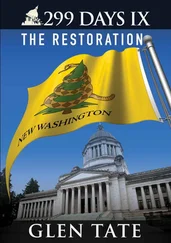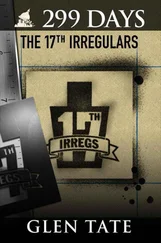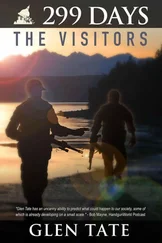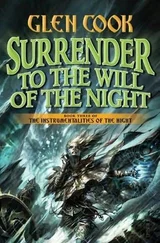“Well, those license plates show that the military, even at bases up here, is chock full of Southerners,” Jason said. “So, if they are loyal to the Southern states, we have a real problem. They’re thoroughly mixed into the military everywhere.”
Jason tried to smile. “This ‘opt-out’ thing of the Southern states is probably bluffing. Some political game.” He didn’t believe that, but he was trying not to be an alarmist. Then he got serious again.
“We don’t know, with precision, which units would go with the Oath Keepers,” he said quietly. “It’s not like some units have declared allegiances or anything. The intelligence people say the situation is fluid. We have been told not to count on the loyalty of any given military unit. Not that most are defecting, but we shouldn’t count on them.”
More silence. The military guy who spoke up earlier looked dismayed. He could not believe what he was hearing.
He spoke up. “My loyalty to my commander in chief, the Governor, since I’m a Guardsperson, should not be questioned…”
“Of course not…” Jason interjected.
The Guard guy continued, “But, since you asked my opinion, I will give it to you now that I have factored in this latest revelation. Do not declare martial law. Do not. Oath Keepers will view it as war. The people will view it that way, too. It will be the thing Oath Keepers use to peel off units. You will have a civil war on your hands.”
Civil war? What? Shit.
Jason started to laugh. “Civil War? Really? You can’t be serious.”
“Yes, sir, I am,” he said. “Do not declare martial law. That’s my advice to the Governor since I was asked for it.” He stared at Jason until Jason looked away.
More silence.
The meeting broke up. No one was talking. They were too stunned.
Jeanie tried to sum up what she had learned. She would be talking to the media all day, so she needed to get her story straight. The truth was that in the short term, things were going reasonably well. Better than they had been. Food and fuel was getting where it needed to go. Well, it was getting to the Seattle metro area and to government installations. In the medium term, they had a plan for getting more food and fuel out. They even had a way to pay for it with the FCards. Well, not “pay” for it, but to distribute it. The majority of the people would be taken care of. This wasn’t the end of the world, just the end of the world as everyone knew it. The pre-Crisis world was gone, but people would still eat.
The long term was a little scarier, with the Southern states talking about “opt-out.” And there were even loyal versus Oath Keepers military units. But, if things worked out, like food and fuel distribution, then there would be a lot less reason for people to fight a… she couldn’t even use the term.
Chapter 96
Marty and His Boys
(May 9)
Joe Tantori was living through history. He knew something was up about two weeks ago when the Marines and sailors he trained for their guard duties at the nuclear facilities started cancelling their classes without saying why. Even his longtime friends on the bases wouldn’t chat with him. Something was up.
At first, the law enforcement guys didn’t seem to be getting the same memo that the military guys were; they kept coming to their classes like nothing was happening. There had been budget cuts, but they still kept coming. They needed to learn the military-style gun fighting that Joe and his staff taught. They had been told to expect “civil unrest” in the future and they had the money to spend on training for it.
Then, right around May Day, the law enforcement guys started cancelling classes. His friend, the sheriff in a neighboring county, said, “LEOs,” meaning law enforcement officers, “will be a little busy for the next couple weeks. We’ll be putting your fine training to use, I’m afraid.” That seemed weird.
Then, when the news hit on May Day and beyond, Joe knew what they were talking about. He knew that, without any law enforcement at its normal levels, his compound way out in the country, full of guns, ammo, and fuel, would be a tempting target for thieves. Many cops and military people had seen his armory with all the weapons he used for training. He and his dozen employees, all military and LEO veterans, made sure the compound was secure.
Joe’s facility was a natural fortress. There was only one long and winding road in with a guard shack and strong gate. The curves in the road slowed everyone down, which gave those in the woods along the road plenty of time to hit them.
Joe had tons of supplies. He and his family lived there, along with his employees. They had an absurd amount of food, and two EMTs who had full medical supplies. None of his employees had families; Joe’s crew was their family.
Years earlier, with a changing political climate, Joe sensed this day was coming. He knew that people like him were getting screwed and wouldn’t take it much longer.
One of Joe’s most coveted possessions at the compound was a 1,000 gallon underground diesel tank. He used it for the small patrol boats they used to train the Marines and sailors on maritime operations at their facility. Joe topped off the tank about a week before May Day. When the fuel prices skyrocketed, he was very glad he had done that.
Joe, his family, and his crew had just about everything they needed. He actually felt good about what was going on. People would finally see that the emperor had no clothes. The government couldn’t do shit right now, and people would have to rely on themselves. Finally! Joe knew he was better off than probably anyone else in that corrupt county. He would walk around his compound smoking a cigar and talking to his guys. He loved it. He felt like these were going to be the most important days of his life.
Ever since Grant Matson had come to the compound and they had discussed a seemingly inevitable collapse, he had struggled with whether to openly be a Patriot or try to keep below the radar. One day, a few months before May Day, Joe realized that he had no choice. He had been blessed with a fabulous compound, a team of employees who were well-trained fighters, and tons of supplies. More importantly, he had been put into a position where he knew hundreds of military and law enforcement personnel. He couldn’t shake the feeling that he was supposed to be working with these military and law enforcement people to do something good.
He realized Oath Keepers was the link between the people he knew and the things he was supposed to do, so he decided to be very open that he was a member of Oath Keepers. He would try to get as many people as possible to join.
Right after May Day, he started receiving weird calls from former students. A group who were LEOs two counties away said they were leaving the force because of the budget cuts and they needed a place to go work. They were Oath Keepers, and wanted to be his “security consultants.” Joe knew what was going on. He said they could come.
Word then got out that Joe was accepting “recruits.” More came. They brought supplies with them. The bunkhouses for students filled up quickly.
Then Joe got a call from Marty; Gunnery Sergeant Martin Booth, who ran the Marine security forces out at the Bangor submarine base where his unit guarded the nukes. Marty, in his deep South Carolina drawl, said, “Joe, can I come out to see you? Like, right now?”
“Sure, Marty,” Joe said. “What’s going on?” As if he didn’t know.
“See you soon,” Marty said and hung up the phone.
He wasn’t in uniform when he arrived. Joe had never seen him out of uniform. He looked nervous.
“Thanks for seeing me, Joe,” Marty said. “I have some business to discuss.” He looked around to see if anyone was around. No one was.
Читать дальше











